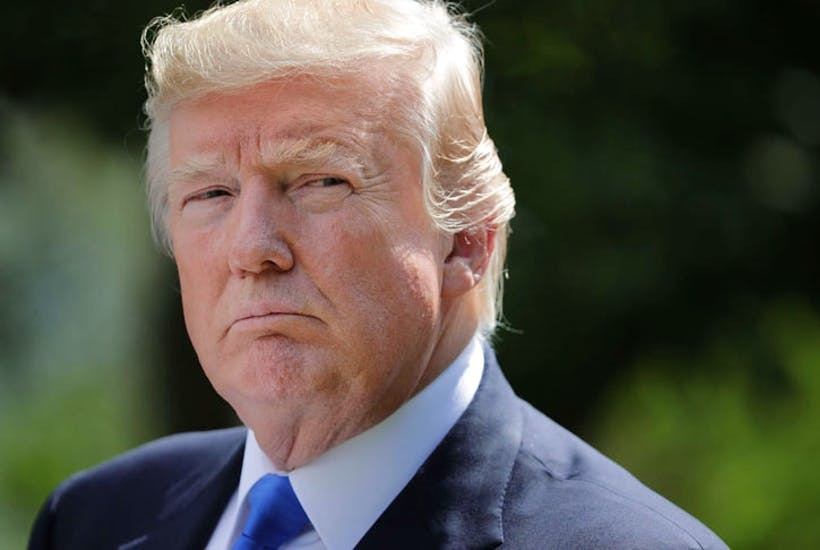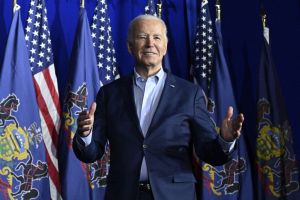If Donald Trump said it was a pretty day outside, his critics would claim he had just sexually harassed the sky. The state of perpetual overreaction his detractors find themselves in goes beyond ordinary party animus. The iron-clad belief in Trump’s extremism, even when he behaves in ways exactly like his presidential predecessors, is a new religion—an apocalyptic substitute for the now extinct faith in international liberalism.
Trump has signed his tariffs on steel and aluminum into effect. Far from adopting an extreme policy, however, Trump has been reasonable to a fault: Canada, the largest exporter of steel and aluminum to the U.S. market, has been exempted from the new duties. So has Mexico. The president wants both countries to come back to the negotiating table to rework NAFTA, and they know the metals tariffs are a bargaining chip in Trump’s pocket. Sceptics are chortling about Trump’s climbdown from his initial position, which was to say no countries would be excluded from the tariffs.
But this is the kind of deal-making that U.S. voters expected when they elected Trump in November 2016. ‘We’re going to be very flexible,’ the president said as he signed the tariff proclamations. Those are not the words of a heedless zealot.
The criteria for assessing which of America’s friends and allies are to get relief from the tariffs are also entirely reasonable and exactly in line with what Trump promised on the campaign trail two years ago. ‘We’re going to see who’s treating us fairly, who’s not treating us fairly. Part of that’s going to be military,’ he said at the signing. ‘Who’s paying the bills. Who’s not paying the bills. We subsidize many rich countries with our military. They pay not 100 cents on the dollar, in cases not 50 cents on the dollar and they’re massively wealthy countries’.
National-security concerns are at the bottom of Trump’s trade strategy. But he takes a broad view, and rightly so. The narrow question of what Chinese dominance of the global steel industry portends for America’s safety, as our own steel producers relatively decline, is of paramount importance, but there are important other considerations as well. The president is right to link the cost America incurs for providing others’ defense with the politics of trade. The more of a burden the U.S. has to bear for allies’ protection, the more industrial power the U.S. will have to conserve—and the more Washington will have to reassure voters that they get something in return for all that they give.
If Europe thrives because of American military protection and because with that protection European states need not devote as much money to defense as they would have to do on their own, then it’s a fair trade that Americans should be allowed to defend their industrial base with favorable economic policies, without incurring retaliation from Europe or other allies. Everyone stands to benefit in the long run from the hard bargain Trump is trying to drive. He’s trying to prevent the American-underwritten world order from committing suicide.


















